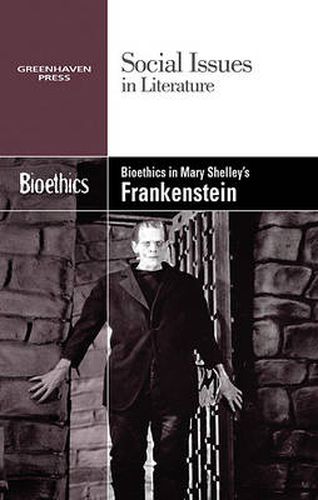Readings Newsletter
Become a Readings Member to make your shopping experience even easier.
Sign in or sign up for free!
You’re not far away from qualifying for FREE standard shipping within Australia
You’ve qualified for FREE standard shipping within Australia
The cart is loading…






When mad scientist Victor Frankenstein defies the laws of nature to generate human life, he quickly finds himself appalled by his creation and abandons it. Frankenstein’s monster, now sentient, must come to terms with his alienness in a world that despises him. Mary Shelley’s Frankenstein has remained a classic literary tale for its brilliant reconciliation of modern science and the age-old cautionary tale. This compelling book offers readers a collection of seventeen essays on the role that bioethics plays in Frankenstein. The book also covers Shelley’s life and work, her knowledge of science and the sources she drew from, how the novel taps into our bioethical desires and fears, and a discussion of contemporary issues such as legalizing the sale of body parts and lifting the barriers to stem cell research.
$9.00 standard shipping within Australia
FREE standard shipping within Australia for orders over $100.00
Express & International shipping calculated at checkout
When mad scientist Victor Frankenstein defies the laws of nature to generate human life, he quickly finds himself appalled by his creation and abandons it. Frankenstein’s monster, now sentient, must come to terms with his alienness in a world that despises him. Mary Shelley’s Frankenstein has remained a classic literary tale for its brilliant reconciliation of modern science and the age-old cautionary tale. This compelling book offers readers a collection of seventeen essays on the role that bioethics plays in Frankenstein. The book also covers Shelley’s life and work, her knowledge of science and the sources she drew from, how the novel taps into our bioethical desires and fears, and a discussion of contemporary issues such as legalizing the sale of body parts and lifting the barriers to stem cell research.